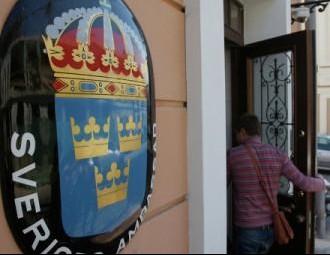Ulad Vialichka: No more reasons for diplomatic feud between Belarus and Sweden

It has been quite a long time since Belarus-Sweden diplomatic conflict started, and the reasons of this conflict are now exhausted.
Such an opinion shared Ulad Vialichka, the chairman of the International Consortium "EuroBelarus".
On September 17 Elena Kupchina, Belarusan Deputy Foreign Minister held a meeting with Martin Oberg, Charge d'Affaires ad Interim of Sweden to Belarus. The meeting concentrated on the discussion of Belarus-Sweden cooperation.
Swedish embassy in Minsk is now open for visitors; however, applications to get visa are still submitted to the Estonian embassy in Minsk.
Ulad Vialichka believes that the situation with the Swedish embassy shouldn’t be included in the general paradigm of Belarus-EU relations. He recalled that the relations worsened in connection with a number of complaints on the part of the Belarusan side to Stefan Eriksson, Swedish Ambassador in Minsk, as well as the notorious story with the “teddy bear landing” and arrest of the Belarusan journalist and realtor in this connection.
“I think that only the fact that the Swedish diplomatic mission to Belarus resumed its work demonstrates that quite a time has passed, and the reasons for conflict are now over. Now the two sides (Belarus in the first turn) are ready to restore bilateral relations”, - Ulad Vialichka said.
He also noted that the moment when this conflict should has been resolved was predetermined by the durations of Stefan Eriksson credentials, who remained to be the Swedish Ambassador for almost a year after his expulsion from Belarus.
“It turned out that both sides haven’t been aiming at speeding up the solution of this problem in their attempt to save face. It was important for the Swedish diplomacy to show principality and solidarity with its colleague, who represented interests of Sweden in Belarus. Belarusan side, in its turn, wanted a moral revenge for the situation. Now diplomatic patience exhausted itself, and it seems for me that Belarusan side is ready to restore normal relations; and the meeting between Foreign Ministries only testifies to that”, - noted the chairman of "EuroBelarus".
Ulad Vialichka expressed hope that this story will end up in complete restoration of relations up to the full-fledged work of the Swedish embassy in Minsk and restoration of its consular department.
-
03.01
-
07.10
-
22.09
-
17.08
-
12.08
-
30.09








































